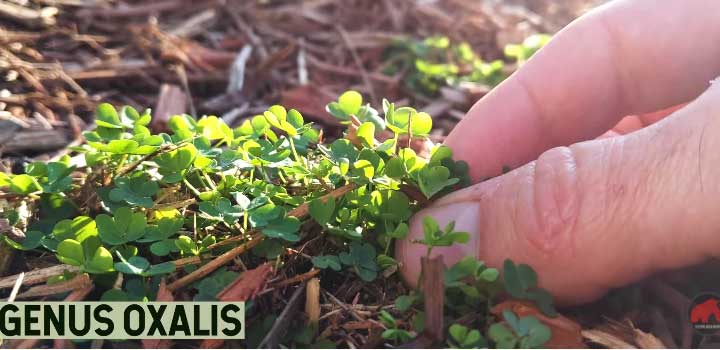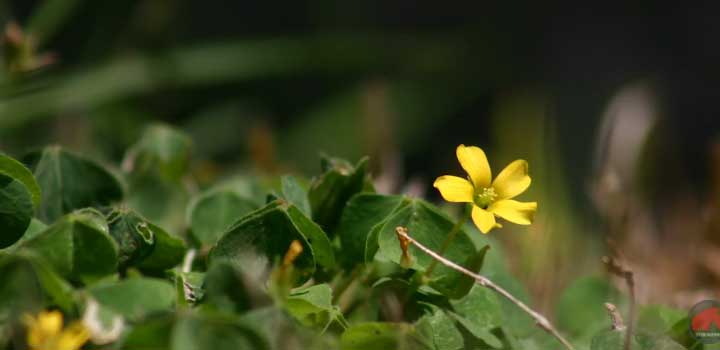Plant growth is stunted, and leaves become yellowish due to the deficiency of nitrogen in the soil. As a natural remedy to this problem, gardeners prefer planting clover in their garden.
Clover is a nitrogen-fixing leguminous plant. Because of its symbiotic relationship with the bacterial rhizobia, it can supply sufficient nitrogen to the soil in the form of ammonia.
The soil requires three types of macronutrients- nitrogen, phosphorous, and potassium mainly. Clover needs more phosphorous and potassium enriched fertilizers. But how to fertilize clover?
Nitrogen deficiency in the soil means that clover alone cannot fulfill the demand. Fertilizers with a high NPK (nitrogen, phosphorus, and potassium) ratio should be applied in the soil. But what should be the ideal amount?
When Can You fertilize clover?

Though clover itself is a nitrogen-fixing perennial plant, it also needs some nutrients for its optimum growth. Fertilizers are first applied to clover lawn during sowing.
But when the soil condition is deplorable, repetitive application of fertilizer from spring to autumn keeps the soil nourished and improves its overall quality.
What Are the Important Nutrients For Clover?
Gardeners prefer planting clover in-between herbs, shrubs, and other vegetable plants in the garden. This leguminous plant supplies other plants with the necessary nitrogen.
To sustain the normal growth and leaves’ color, clover needs a large number of macronutrients like, potassium and phosphorous. In addition to these macronutrients, clover also requires a sufficient amount of zinc, copper, manganese, boron, and iron in the soil.
All these micronutrients support photosynthesis and boost cellular metabolism within the plant.
How Much Fertilizer Is Needed For Clover?
Leguminous plants like clover need a large quantity of phosphorous and potassium to transform energy in their nodules. So ideal fertilizer should have an NPK value of 0-20-20, 5-10-5, or even 10-20-10 at least.
As these fertilizers are available in both crystal and liquid form, it’s challenging to assess the exact amount of needed fertilizer. But roughly 250-300 lbs. of solid fertilizer is required to fertilize an acre of clover lawn.
You can check out the best lawn fertilizer for clover to get a clear idea about the fertilizer, type, and amount needed for your clover lawn.
How to Fertilize Clover
Fertilizing clover doesn’t require much time, planning, and tools. But you must have proper knowledge of two things – how to apply and how much to apply. Some common gardening tools will get your work done in a short time.

Step by Step Guide to Fertilize the Clover
You can’t win a war without weapons. Similarly, you can’t fertilize the clover lawn without basic gardening tools.
Essentials for fertilizing the clover lawn:
- soil rake
- lawn mower
- spreader
- leaf rake
- double hand hoe
- top-notch fertilizer
- watering can
Procedure:
- Periodical Mowing
Perennial and leguminous plants grow rapidly. Slightly trimming the leaf blades ensures optimum growth. A lawnmower comes in handy in this case. In the growing season, you might need to mow the clover lawn 2-3 times.
Moreover, regular trimming removes weeds and other unwanted herbs from the garden. So all the vegetable and flower plants get enough nutrition from the soil.
- Use Suitable Herbicide
Only mowing is not sufficient if you’re too busy to take care of your garden often. Apart from mowing, herbicides should be applied to the unwanted, grass and herbs. These will ensure sufficient growth of the roots of clover.
Glyphosate, commonly known as roundup, like Roundup Ready-to-use spray, Roundup Pro, etc. are suitable herbicides for your garden.
- Loosen the Soil
Regular watering the plants makes the soil particles compact. So, before fertilizing clover, slightly loosen the soil using a spade or soil rake. Remove the fallen leave with a leave rake for easy application of the fertilizer.
- Run a Soil Test
This is a must to perform step for fertilizing clover. A throughout soil test will let you know the soil pH, nutrition status, and the soil’s overall condition.
Benefits of running a soil test are-
- Assessment of Soil pH
The ideal pH for growing clover is 6-7. The optimum pH may vary depending on the types of clover, like sweet clover grown well at pH 6.3.
So, if the soil is too acidic, increase the alkalinity using lime. And the pH of alkaline soil can be reduced using aluminum sulfate.
- Assessment of the Need for Nutrients
A soil test will help you to know which nutrient is deficient in your garden soil. This will help you to determine the NPK value of the fertilizer.
Moreover, it’s possible to know the exact numerical value of the needed fertilizer for the clover in your lawn.
- Application of Fertilizer
Initially, start with fertilizing small areas in the garden. If it’s a crystal-based fertilizer, directly apply to the scooped soil. Mix the fertilizer and the soil properly and set the soil again.
It’s ideal for fertilizing clover early in the morning.
- Water the Clover
Once you’re done with fertilizing, wait for 12-24 hours. Then water the plants using a watering can.
- Monitor the Growth
Carefully monitor the growth and response of clover to fertilizer. Keeping apply the fertilizer in small amounts repeatedly throughout the growing season.
FAQ’S
What are the essential nutrients for clover?
Clovers need phosphorous and potassium more. But in poor soil conditions, it also needs nitrogen, boron, iron, manganese, and other nutrients.
Does clover grow fast?
Clover is a fast-growing legume. Its growth can be multiplied by fertilizing frequently
Final Verdict
Fertilizing clover can be overwhelming when you’re ignorant of the condition of your soil. So, before selecting the NPK value of the fertilizer, professionals suggest running a soil test.
Clovers don’t need high maintenance. Moreover, it’s easily available on lawns and gardens. Professionally clovers can be grown from seeds. This improves the soil condition and attracts bees and other insects for pollination.
All these benefits can be achieved when you know some basic steps on how to fertilize clover. So are you ready to increase the productivity of your garden tenfold?